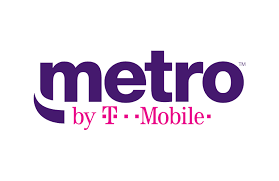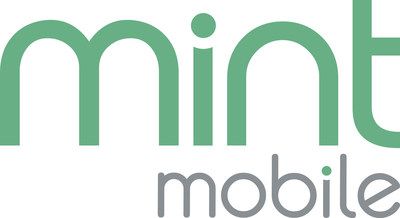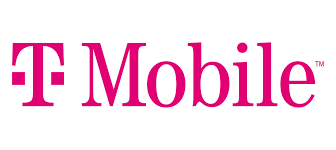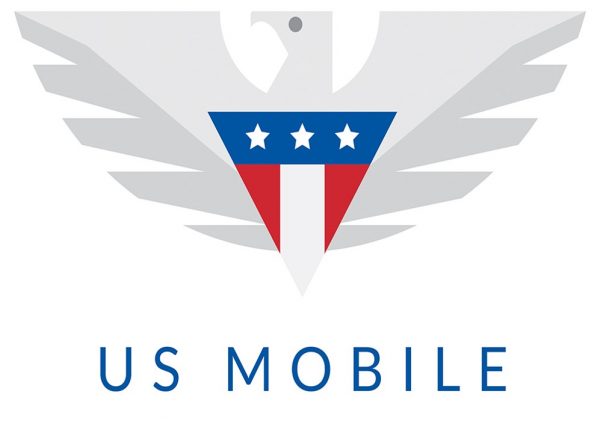It is common for people to switch providers in an attempt of finding the best phone carriers. Like any other industry, phone carriers also witness aggressive competition in the market. Each organization does what it can to maintain customer loyalty and retain business by offering inexpensive service plans. As a result, customers get many options when it comes to choosing the best mobile networks.
However, while having multiple options may seem convenient, it can also be exhausting to make a decision. That’s why we compared how some of the major cell phone carriers fared in terms of the most important factors. These include network coverage, speed, reliability, customer service, and cost. With these factors in mind, let’s distill the USA’s plethora of mobile carriers into the top 10 best mobile networks.
Best Phone Carriers in the USA
Based on multiple studies and reports, here are the 10 best mobile networks in the USA (in alphabetical order):
1. AT&T
|
|
AT&T is one of the best phone carriers in the USA — and that’s not only due to its popularity. Like any good phone carrier, AT&T operates a network of cell towers. Hence, you can be guaranteed better network coverage because of AT&T’s direct sourcing.
Furthermore, since the emergence of 5G, phone carriers have been scrambling to provide future-proof data coverage. AT&T is no exception and provides just that with top-quality network performance. In fact, third-party firms have ranked it just behind T-Mobile in terms of 5G performance. It also covers coast-to-coast 5G and has a similar reach to Verizon — arguably the biggest and farthest-reaching carrier.
However, AT&T’s plans aren’t always competitive compared to its rivals. The Unlimited Elite, for one, is also its most expensive at $85/month. This bundles HBO Max streaming and unlimited high-speed data, which AT&T says can’t slow down based on how much you use.
Unfortunately, AT&T’s more affordable unlimited plans aren’t as good as rival plans from T-Mobile or Verizon. However, they’re still worth considering because each one offers 5G at no added cost. Moreover, AT&T’s family plans have become more flexible, allowing you to choose from different unlimited tiers.
Pros
- – Far-reaching network coverage
- – Continuously expanding 5G coverage
- – Unlimited plans with 5G at no extra cost
Cons
- – Expensive plans
- – More affordable plans are not competitive enough
2. Consumer Cellular
|
|
Consumer Cellular is the best phone carrier for you if you’re looking for mobile plans on a budget. That’s because it offers reasonably affordable plans provided you don’t need much data or talk time. You can also change your monthly data allowance on the fly for the times you do need it. If you exceed your monthly minutes or web data, you’ll automatically be upgraded to the next plans instead of letting you pay the coverage. This way, you’ll get the best deal without keeping a contact.
In addition, Consumer Cellular also allows you to lower your monthly cost if you share a mobile plan. For the first additional line, you just have to pay $20/month and $15/month line for all additional lines.
Consumer Cellular is also a mobile carrier ideal for seniors because it offers discounts to AARP members. You get 5% off so you’ll have an even smaller bill while getting all the basics covered. On the other hand, since it uses both AT&T and T-Mobile’s networks, you get extensive coverage and performance overall.
Pros
- – Low cost
- – 5G coverage
- – AARP member discounts
Cons
- – Better deals from other carriers if you need more data
- – Not the best customer service
3. Google Fi
|
|
Google Fi used to be an exclusive mobile network for Google Pixel phones. It has since expanded its reach to other phones, letting you tap into its services regardless of brand.
Google Fi provides competitive plans if you don’t need that much data. You can get unlimited calls and texts for just $17 monthly. If you need an internet connection, you can simply pay $10 more for each GB you consume. You can also adjust the amount according to your essentials, so you won’t need to worry about overspending if you consume less than a GB.
There are also other Google Fi plans that offer you the ability to text and access data from other countries. Hence, it’s a great option if you’re a frequent flyer or traveler. However, you do lose this feature when you downgrade from compatible plans, so it will cost more.
Pros
- – Pay for what you consume
- – International texts and data
- – Great for Google Pixel owners or users of compatible phones
Cons
- – Unlimited data is slightly pricey
4. Metro by T-Mobile
|
|
Formerly known as MetroPCS, Metro by T-Mobile is a subsidiary of T-Mobile, offering low-cost cell services. Metro offers competitive unlimited plans like its $40 plan for 10 GB of data. This plan even offers free music streaming for over 40 streaming services that don’t deduct from the data allowance. There’s also a $50 and a $60 plan that provides individual benefits like a hotspot or Amazon Prime membership.
Furthermore, Metro is a solid mobile network if you’re looking for a good set of smartphone options. That’s because it has a good variety of choices along with numerous discounts.
Unfortunately, the only problem with Metro is that it can slow your data service when the network is congested. However, this rarely happens so you shouldn’t be too wary of it. Furthermore, Metro’s prepaid plans aren’t always attractive either, with other carriers offering more data for the same price. This in turn makes Metro a less compelling option in terms of prepaid.
Pros
- – Affordable unlimited plans
- – Better high-speed data than others
- – Wide variety of plans
- – Uses T-Mobile’s wide network coverage
- – 5G coverage
Cons
- – Not many perks bundled with plans
- – Possible data deprioritization
5. Mint Mobile
|
|
Mint Mobile is another phone carrier option to consider if you’re on a budget. However, there’s a catch: this carrier requires you to lock into a contract for a year to retain its low prices. This makes Mint Mobile a good option only if you’re certain that you won’t break your contract during your term with them.
However, if you do choose Mint, you won’t be disappointed with its low-budget plans. For starters, it offers a $15 monthly plan that already provides 4 GB of LTE data. Also, as Mint Mobile uses T-Mobile’s network, you’re guaranteed to get fast and extensive coverage. In addition, you can access 5G coverage if your plan is compatible with your phone.
Mint Mobile is also great if you like to have a variety of phone options at your disposal, as it offers an extensive set of both iPhones and Android handsets.
Pros
- – Low rates
- – Uses T-Mobile’s extensive network
Cons
- – Yearly commitment to getting an affordable plan
- – Limited perks
6. T-Mobile
|
|
T-Mobile strikes a great balance among all of the important factors that make a great mobile network. This includes extensive coverage, numerous perks, and a wide variety of plans.
If you’re looking for the best unlimited data plan, T-Mobile has you covered. Its $70 Magenta plan is a great choice, offering coverage even while abroad with no added taxes and fees. You can also snag numerous discounts if you choose the Magenta family plan, making it good for group purchases.
While T-Mobile offers premium plans, it also has a number of low-budget offers in its repertoire. For example, it provides solid prepaid low-data plans in 2.5 GB and 5.5 GB brackets. They even have 5G coverage as T-Mobile has intentionally sought to include 5G in all of its monthly plans.
In addition, T-Mobile offers some of the fastest download speeds in the country in both LTE and 5G. Furthermore, as it acquired Sprint not too long ago, you can expect even better 5G coverage all around.
Pros
- – Among the fastest networks
- – Coast-to-coast 5G coverage
- – Great unlimited plans
- – Low-cost data plans
- – Solid choice of perks
Cons
- – Data cap for prepaid plans
7. US Mobile
|
|
US Mobile is another budget-friendly carrier, this time for the savvy consumer who wants to customize their usage. With US Mobile, you are given free rein to tweak your talk time, texts, and data allowance according to your needs.
Thus, you’ll be able to save money because you pay only for what you consume. In fact, if you only need unlimited texts, you’ll only have to spend as little as $9 monthly. Conversely, you can also add talk time, texts, or data as needed.
Furthermore, since US Mobile utilizes T-Mobile and Verizon’s networks, you can expect extensive overall coverage. Hence, you won’t have to worry about location limits or 5G coverage when signing up with US Mobile.
Pros
- – Customizable plans
- – Fast speeds
- – Solid perks
- – Great coverage
Cons
- – Limited phone selection
8. Verizon
|
|
Verizon is well known around the States for being consistent in its delivery of speed, coverage, and reliability. It is one of the few networks that you won’t fret over with even if you move elsewhere since it has a vast 5G network. Moreover, its mobile plans come with a lot of extras you’d happily have such as access to Hulu, Disney+, and ESPN+.
Unfortunately, all this quality comes at a cost and Verizon doesn’t shy away from that at all. In fact, it unabashedly offers some of the most expensive plans in the industry. They start at around $70/month for a single line and can go as high as $90 depending on your needs. Hence, it’s safe to say that Verizon is recommended only if you can afford its high rates.
Pros
- – Best-in-class network speeds
- – Affordable wearables & tablets
- – Solid phone selection
Cons
- – Plans that can be expensive
9. Visible Wireless
|
|
Not everyone needs the best mobile networks with the hottest unlimited data plans. Sometimes, all people want is a reliable prepaid plan that’s affordable, simple, and flexible. If that sounds like you, then look no further than Visible Wireless plans, one of the best mobile networks for prepaid.
Visible offers only one plan at $40/month. This nets you unlimited calls, texts, and data with a cap of 5 to 12 Mbps depending on your location. Hence, it’s a great plan if all you need is simple connectivity with a bit of data to get by. However, this also means that it’s not the best carrier if you’re looking for heavy-duty data consumption. That’s because Visible not only caps its data speeds but it also doesn’t provide a 5G plan.
However, if you’re okay with that, then Visible is a decent choice. It also has a great selection of phones, including the latest flagships from Apple and Samsung. As Visible uses Verizon’s network, you’re guaranteed coverage almost anywhere in the USA.
Pros
- – Good network
- – Numerous phone options
- – Unlimited data plans
Cons
- – Data caps
- – One plan option only
- – No 5G plans
10. Xfinity Mobile
|
|
Xfinity Mobile saves you money by providing you with both home and cell services in one package. Sure, it may seem like a large bill overall, but it saves more as opposed to getting separate services.
Xfinity Mobile also offers 5G access at a lower cost than other large carriers. You can get it with the $45/month plan, which makes it a good deal if you want 5G speeds. Additionally, as Xfinity uses Verizon’s network for mobile, you can expect fast and far-reaching coverage.
Xfinity Mobile also offers a wide variety of phones so you don’t run out of options. However, to access Xfinity Mobile’s mobile network plans, you do have to sign up with them for your home internet. Hence, you have to consider that first before you subscribe to Xfinity Mobile.
Pros
- – Good deals
- – Flexible plans
- – Covers both home and phone internet
Cons
- – Combines internet and data service (required)
Picking the Best Mobile Networks
The best mobile networks in the USA don’t have to be limited to the big three. While they are, of course, included on this list, there are many other good options, too. There are options for budget-friendly consumers, premium shoppers, and people who want a good balance of both. Regardless of which type of consumer you are, there’s a good mobile network for you.
Did you know that Sprint and Verizon use the CDMA mobile network standard, while T-Mobile and AT&T use GSM like the rest of the world? Learn about the differences between CDMA and GSM in our comprehensive guide!










